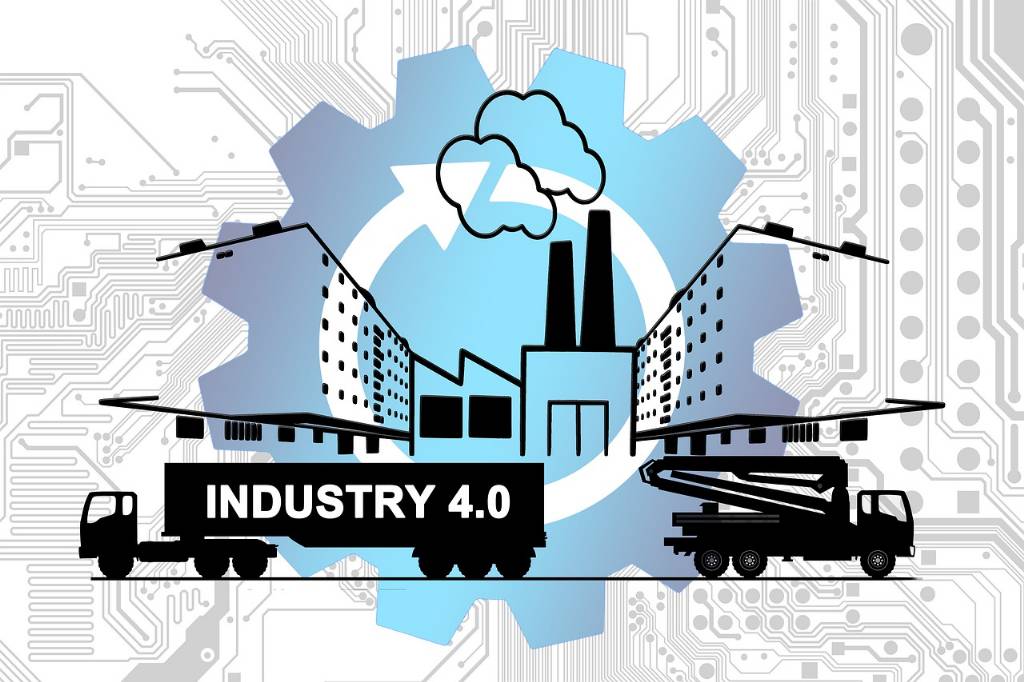Industry 4.0 Market: Trends and Future Outlook

The fourth industrial revolution has influenced how the manufacturing sector works. Digitalization has been taking over almost every sector and across industries. Transformative trends like the development of digital communication and robotics improvements may be the driving forces behind this.
Globally, the Industry 4.0 market is becoming more and more popular.Therefore, there has been substantial growth in the market. A research firm, GMI Research, mention in their industry 4.0 market analysis that industry 4.0 market size reached USD 72.7 billion 2022 and would reach 314.5 billion in 2030. This rapid development is owing to the rising adoption of automation in many manufacturing sectors.
Smart manufacturing platform, for example, allows manufacturers to optimize the manufacturing process by using automation to maximize the process, accurately identify problems, and increase efficiency.
What are The Technologies?
The emerging trend is utilizing various technologies to enhance its implementation.
- Cloud computing
Cloud computing forms the foundation of industry 4.0. In the smart manufacturing process, there has been an increased necessity to have integration and connectivity regarding several aspects such as supply chain, production, among others. This technology can provide centralized data which can be accessed by many stakeholders so everyone can have accurate information in a real-time manner. Cloud computing also allows the storing and processing of extensive volumes of data, which makes the whole process more efficient. By using cloud computing, many small businesses or start-ups can get the help they need which can assist them in growing their businesses.
- IoT
IoT is the next best thing. By using this technology, smart factories can utilize machines which are equipped with sensors and integrated with other equipment. This connectivity allows the equipment to process valuable data and smoothen the collection and analyzing process. By using IoT, operators can control equipment remotely, monitor the manufacturing process, and identify and address problems swiftly.
- AI and machine learning
By using AI and machine learning, manufacturers can get the benefits of large volume of information in the whole business units. They even can get valuable insights from third parties as well. With its automation, this can accurately give prediction and streamline the whole processes both in operations and business side. For example, AI and machine learning can give alerts if the equipment shows any problem sign and give valuable advice regarding the solutions. This technology can also provide predictive information about when the equipment should have regular maintenance which can result in lower downtimes.
- Edge computing
Edge computing is capable of streamlining the process of collecting, sending, and analyzing data. This minimizes the time gap between data creation and response necessity. For example, when there is a quality or safety problem that needs swift responses, edge computing will contribute to providing real-time action, and therefore prevent worse implications.
- Cybersecurity
As industry 4.0 relies heavily on the internet, cybersecurity is playing a pivotal role. This technology ensures the safety and security of cyber systems. By ensuring cybersecurity, the whole system can be protected from malicious attacks. When implementing industry 4.0, manufacturing companies should equip their system with proper and advanced cybersecurity to ensure smooth and productive operational processes.
The Benefits
Many manufacturing companies gain benefits from industry 4.0.
- Increase efficiency and productivity
By implementing the technologies, manufacturing companies can maximize production output in minimal time. Therefore, companies can strategically allocate resources while minimizing waste. As the technology allows a delivery of real-time and accurate information, companies can make an informed decision and act accordingly, which can prevent any potential damage or loss. These technologies can also reduce machine downtime as operators can know when the right time is to do regular maintenance, thus can increase productivity.
- Allows flexibility
As industry 4.0 uses cloud computing and other technology integration, manufacturing companies can access and process data whenever and wherever thus allows flexibility. To increase its competitiveness, it is important for manufacturing companies to ensure that they can work fast and accurately while also making the right decision. Industry 4.0 allows companies to increase their agility in order to compete and operate in a highly complicated landscape.
- Improves communication
Manufacturing companies can improve their communication and collaboration process by utilizing the technologies in order to reach their targets. It can be communication with operators, suppliers, or stakeholders. Despite the location or time zone, communication and collaboration can proceed smoothly. With smooth communication, the production process can stay on track and avoid any unneeded delays.
- Cost reduction
The technologies in industry 4.0 can help manufacturing companies to minimize maintenance costs, prevent supply chain disruptions, and address distribution bottlenecks, that can reduce any additional expenses. In addition, as industry 4.0 utilizes automation, there can be a reduction in labor costs, while a skillful employee can undertake other responsibilities. Furthermore, as productivity increases and more production output, companies can get more profit.





